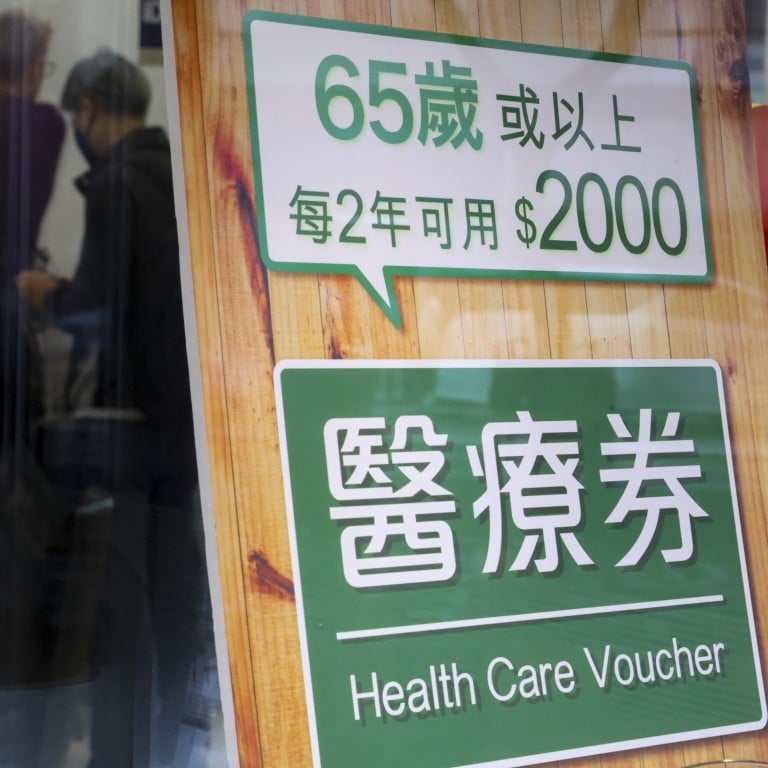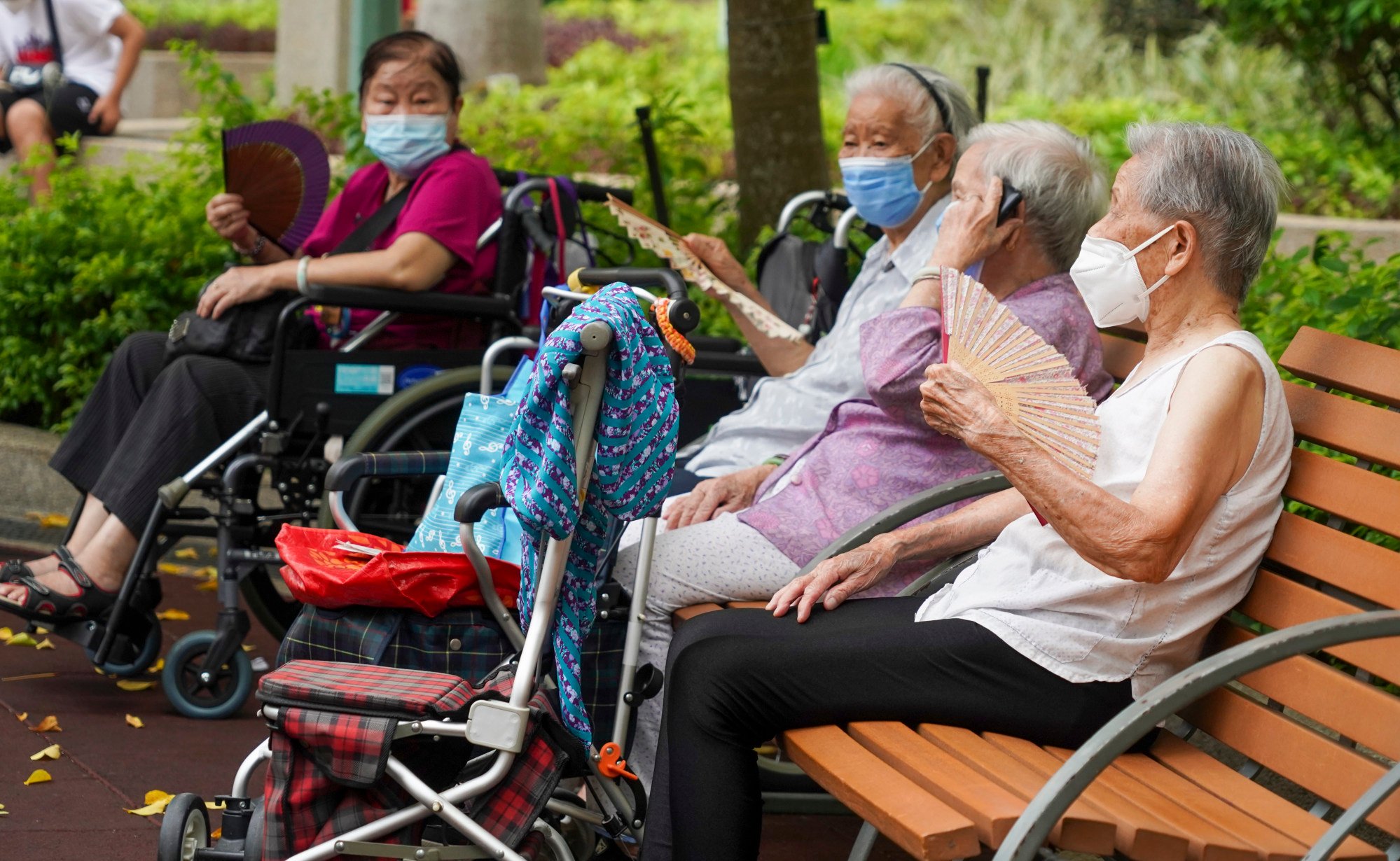
Hong Kong scheme allowing elderly to share healthcare vouchers will be policed to prevent fraud, Legco told
- Review system will be established to prevent abuse of vouchers, acting secretary of health Libby Lee tells Legco
- Department of Health will also monitor registered information to check for any irregularities, lawmakers told
A review system will be set up to prevent elderly people in Hong Kong from abusing a new scheme that allows spouses to share healthcare vouchers, legislators have heard.
“Are there any mechanisms to prevent issues such as using the same identity to register for several accounts? Or if your identity was registered by someone else unknowingly?” said legislator Chan Hoi-yan of the Election Committee constituency.

But Libby Lee Ha-yun, the acting health secretary, said steps would be taken to prevent fraud.
“If an elderly person is using the balance of their spouse’s account, they would also need to present a copy of the spouse’s identity card,” Lee explained.
She added that after each use of the spouse’s voucher, an SMS would be sent to the user and their partner.
“The Department of Health would also monitor a series of data, especially any abnormal circumstances. For example, an elderly person might have registered [a spouse’s account] two to three times … or change a few [spouses] in a year,” Lee said.
The government said it would encourage elderly people to “make better use of each other’s voucher entitlement” to access private primary healthcare services.
Hong Kong couples to be allowed to share elderly healthcare vouchers from July
Couples will be required to declare their marital status when they register for the sharing arrangement and present their identity cards, but do not need to show a marriage certificate.
When someone has used up the HK$2,000 (US$255) in their own account, he or she can start to use their partner’s credit.
But Lee warned couples would be subject to legal liability after they made the declaration.
“The Department of Health will also conduct reviews,” she added.
The voucher accounts will be linked until one spouse submits a written application to end the arrangement.
A three-year pilot reward scheme will also be introduced later this year where users who spend at least HK$1,000 from their voucher account on designated services, such as specific health assessments and chronic disease screening, would be credited with an extra HK$500 for the same purpose.
Hong Kong primary healthcare reforms, greater elderly subsidies ‘a right step’
More than 11,600 healthcare providers had registered for the programme by May and about 1.56 million elderly people had used the vouchers – 97 per cent of the total eligible population.
The amount of vouchers claimed last year was HK$2.5 billion, a decrease from the HK$2.8 billion recorded in 2018.
Lawmakers also used the panel meeting to ask authorities when the healthcare vouchers could be used to cover premiums for medical insurance in mainland China, a popular retirement destination for Hongkongers. The government said it was studying the feasibility of such an arrangement.
“The mainland has a clear system on medical insurance. Is it necessary to study [the system] for that long?” Kingsley Wong Kwok of the Election Committee constituency asked. “How should we connect with the policies in the mainland? It seems that the mainland is in the fast lane and Hong Kong is in the slow lane.”
Lee said the healthcare voucher scheme was created to allow elderly people to receive primary care services, but mainland medical insurance was designed more for inpatient care costs.
Eddie Lee Lik-kong, the deputy health secretary, explained authorities were still collecting information on the coverage offered by medical insurance schemes in a variety of mainland provinces.

